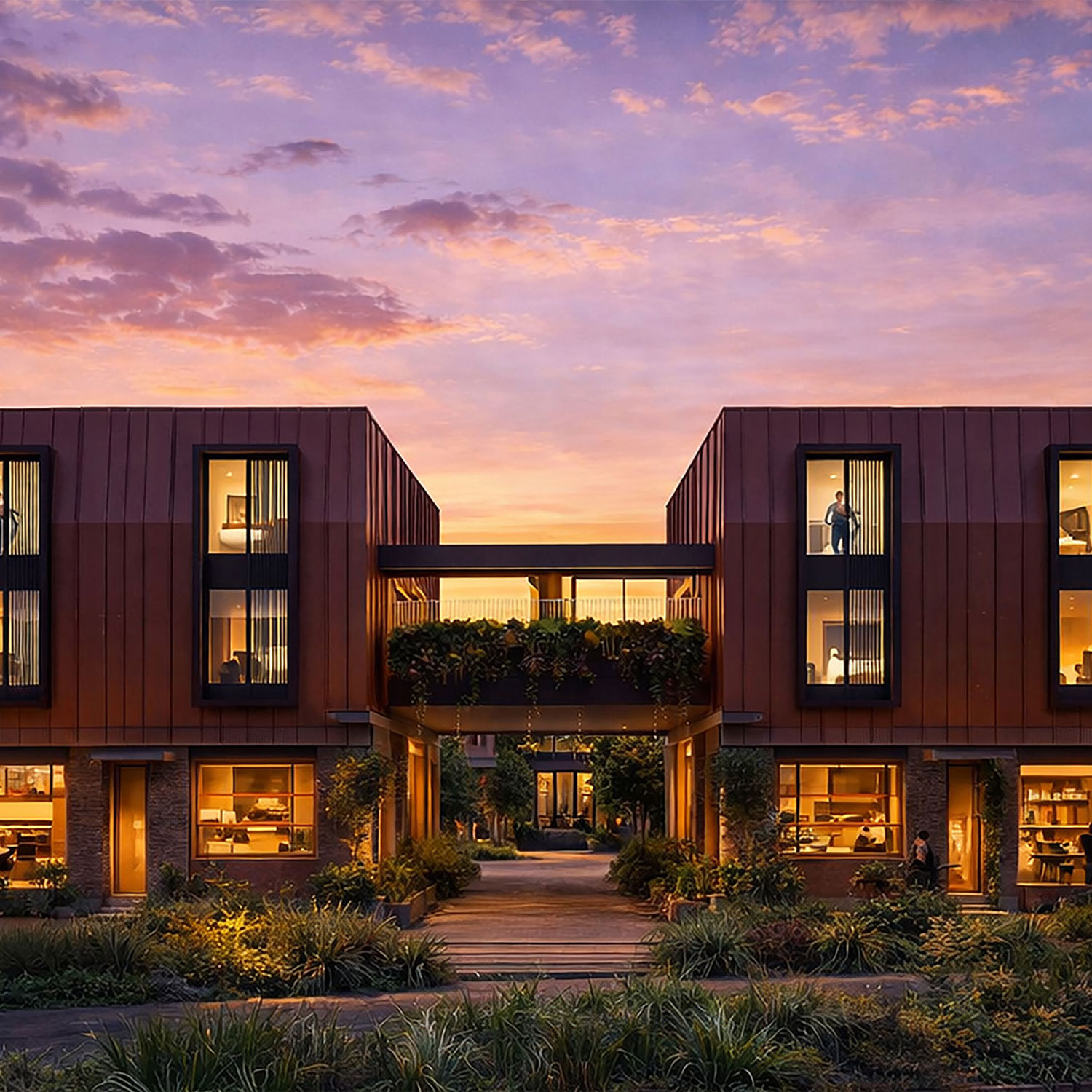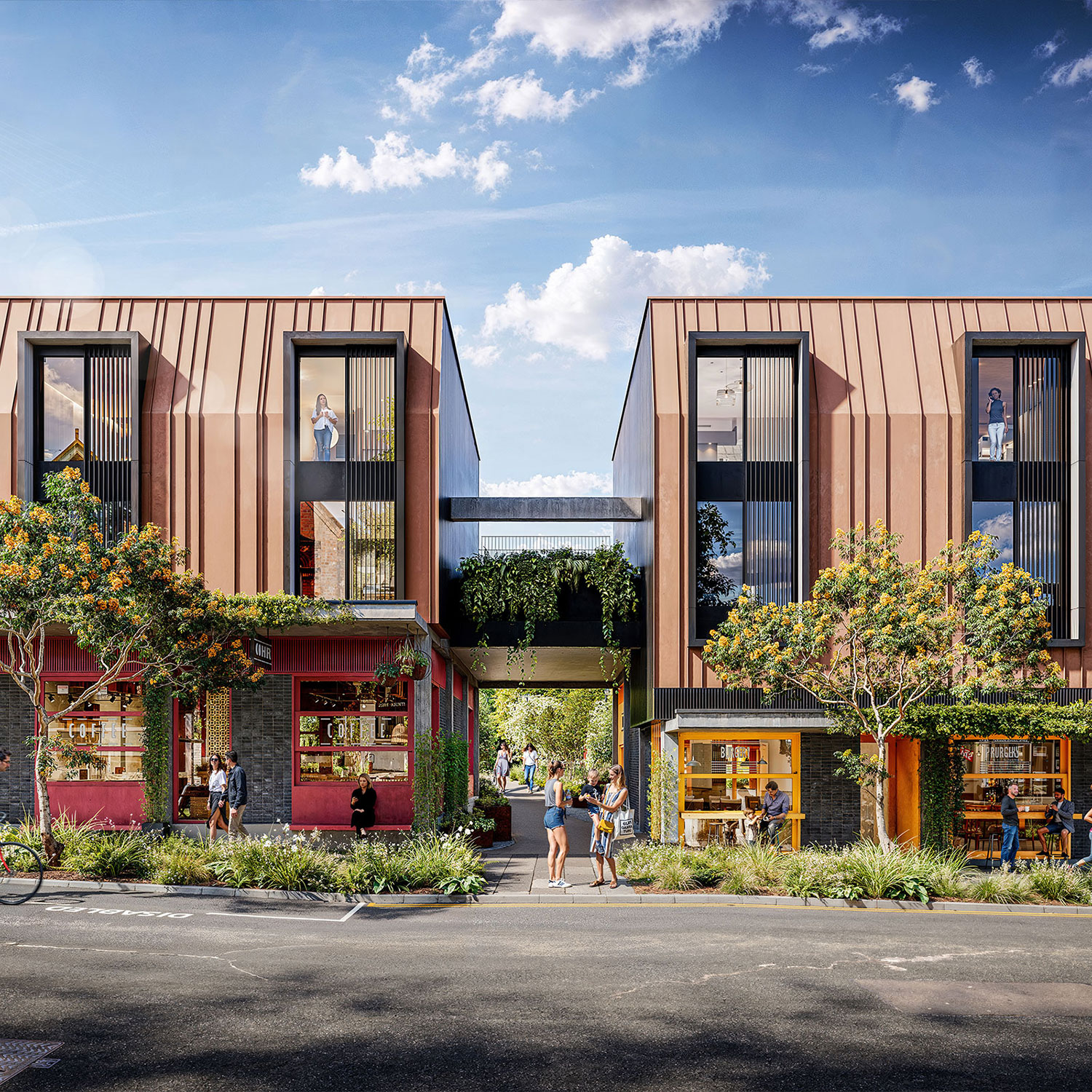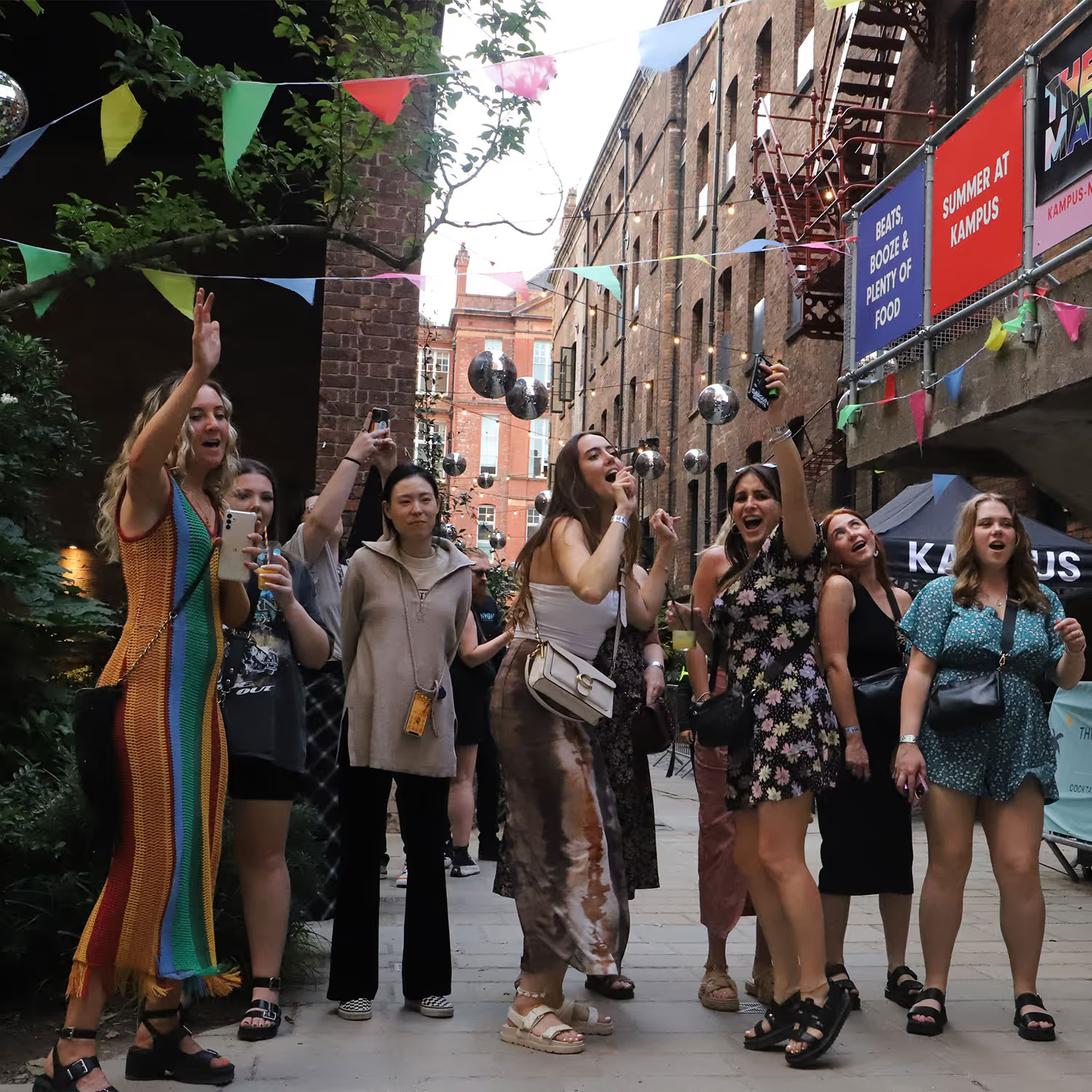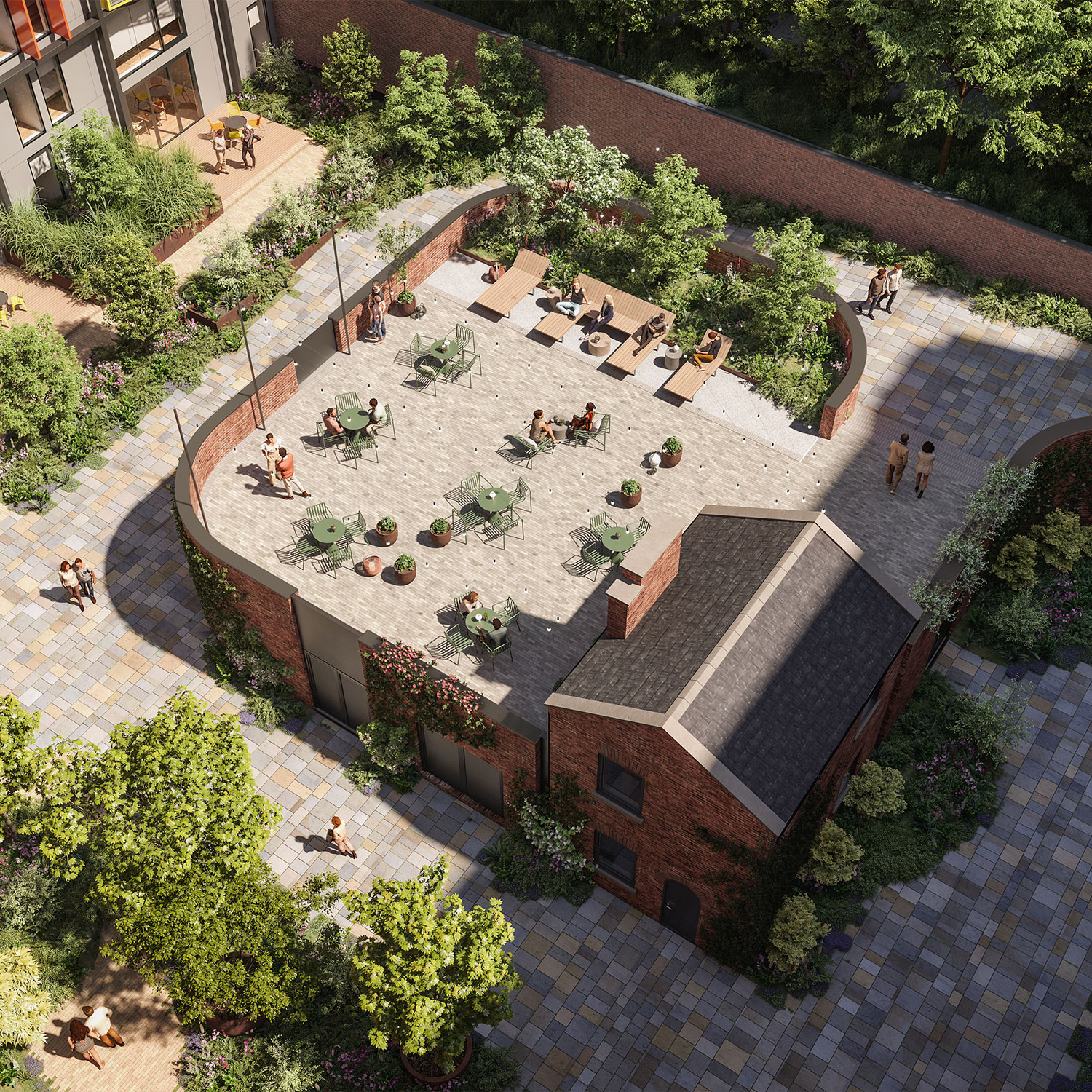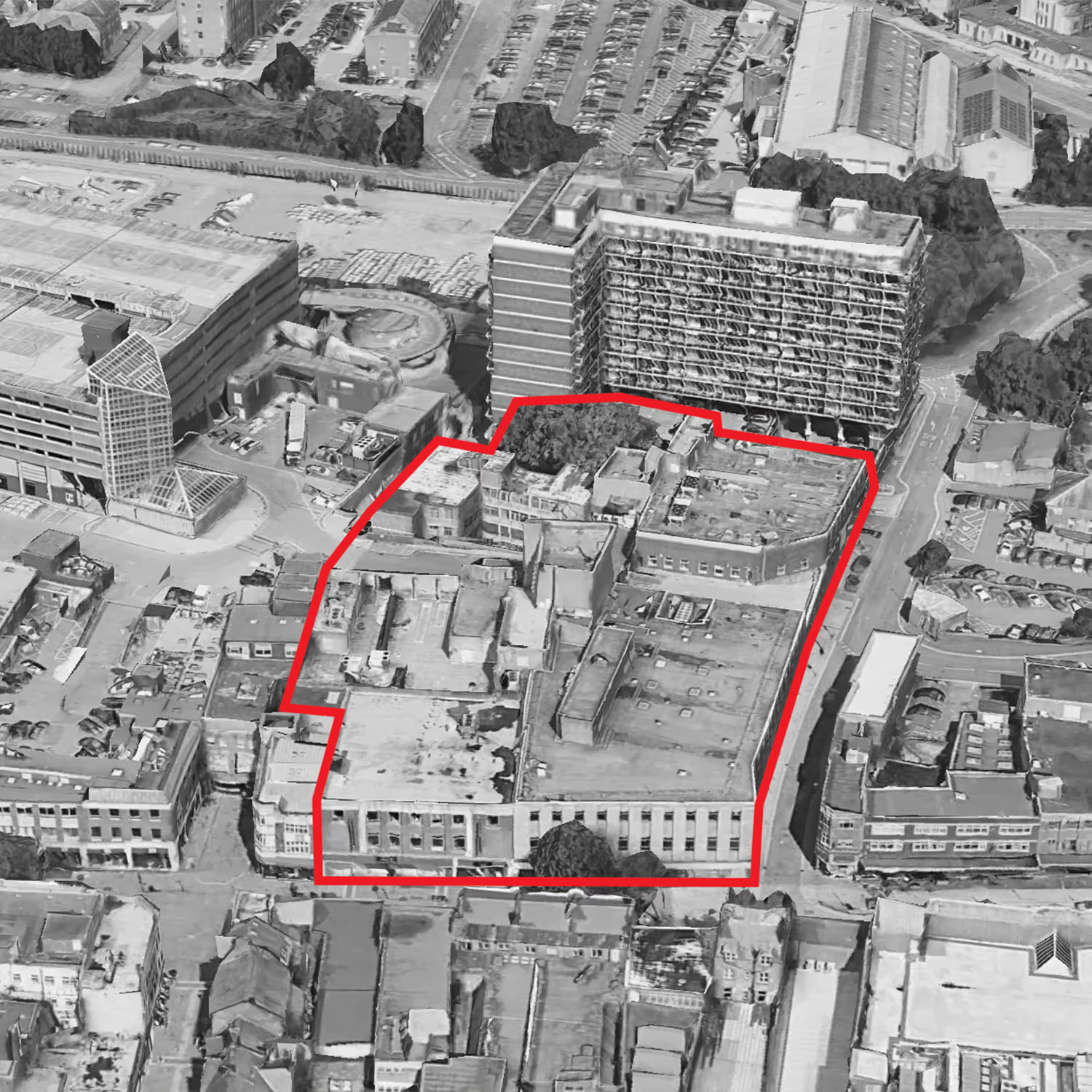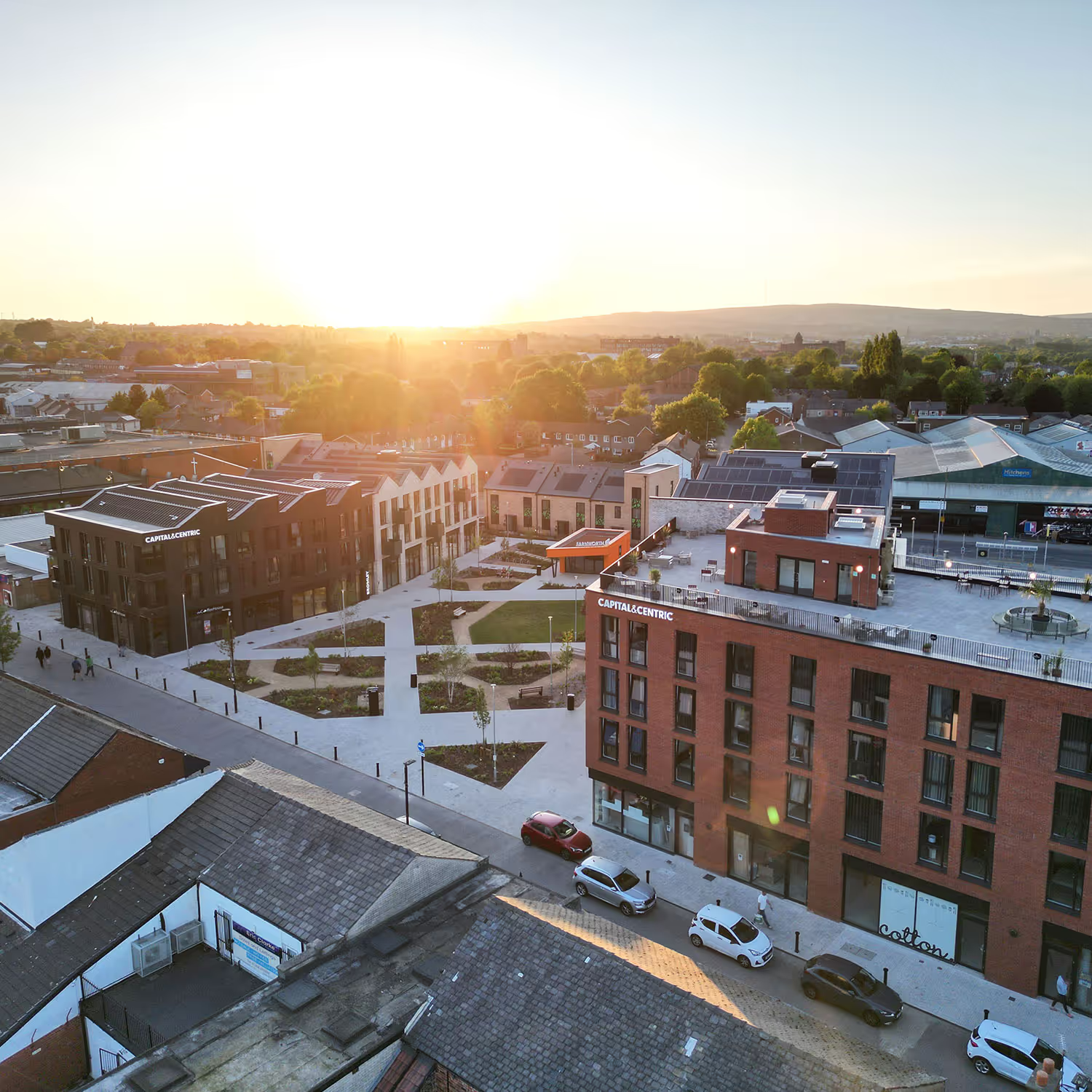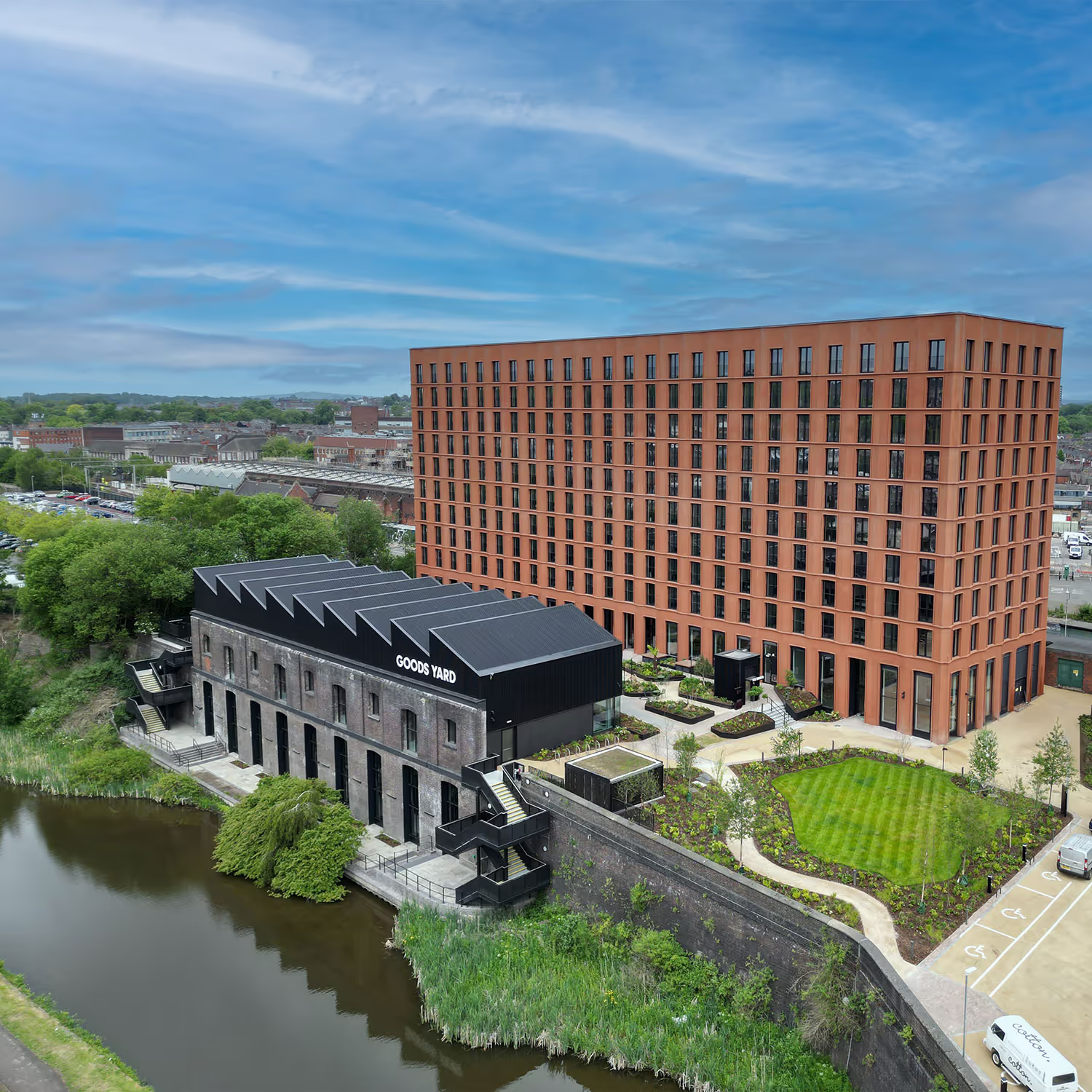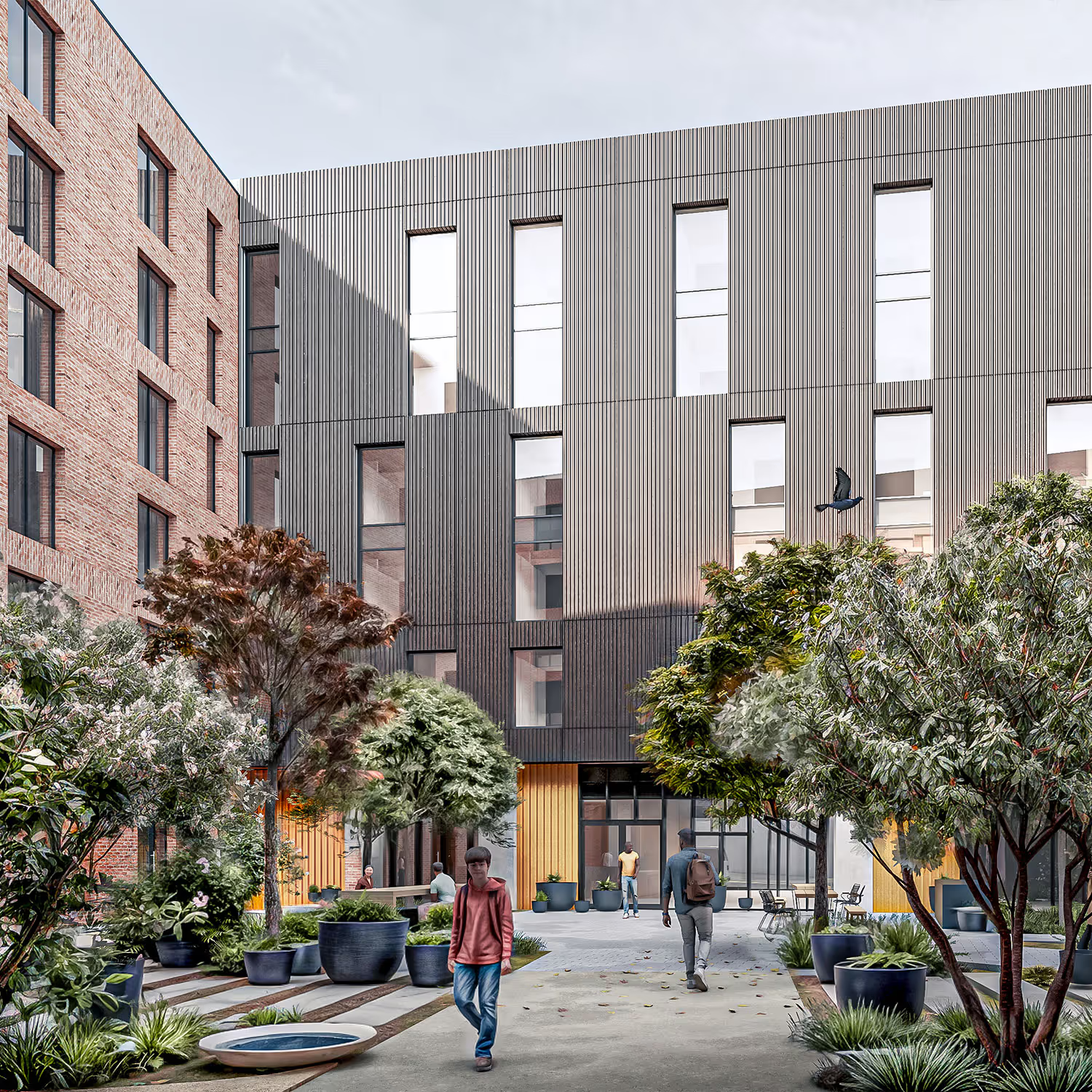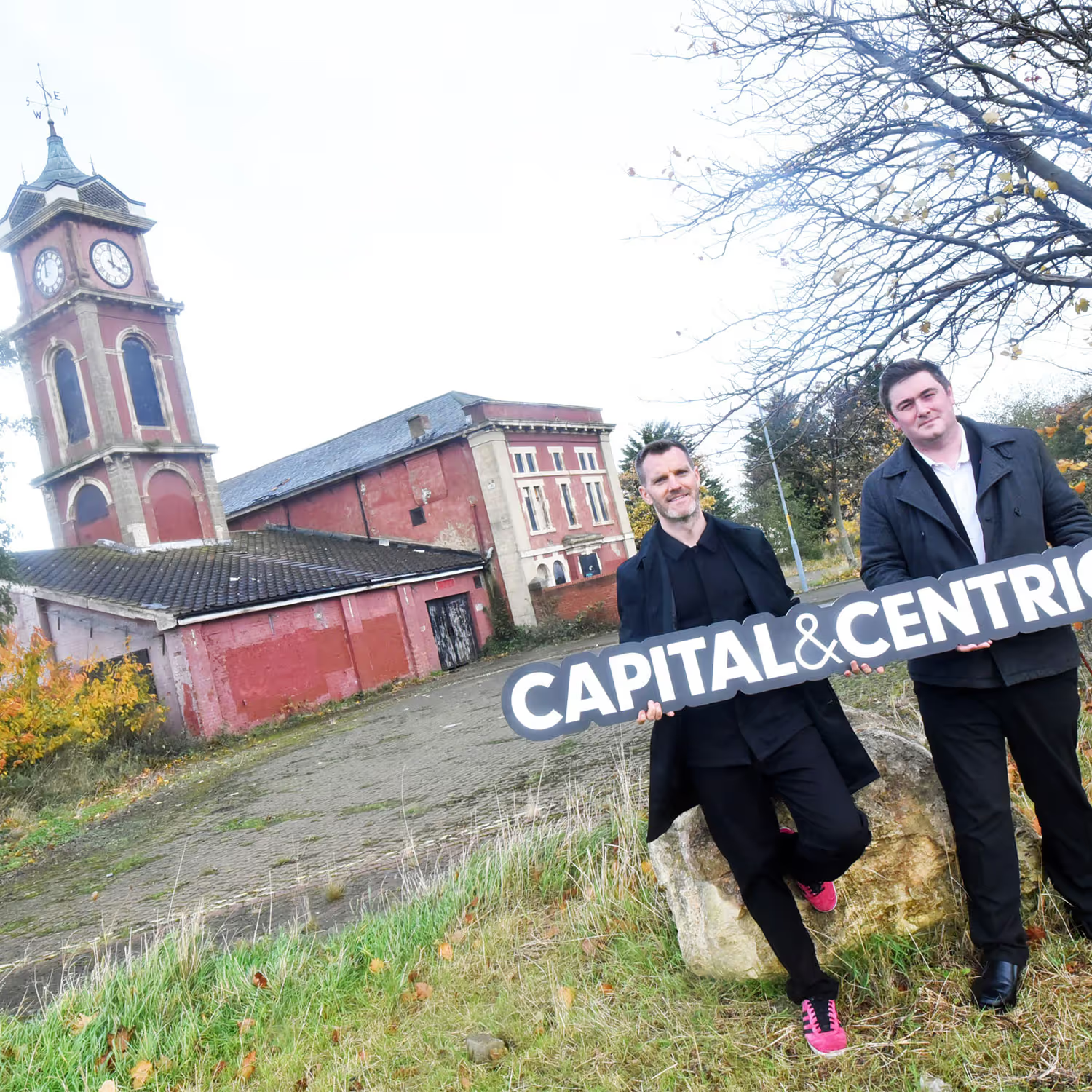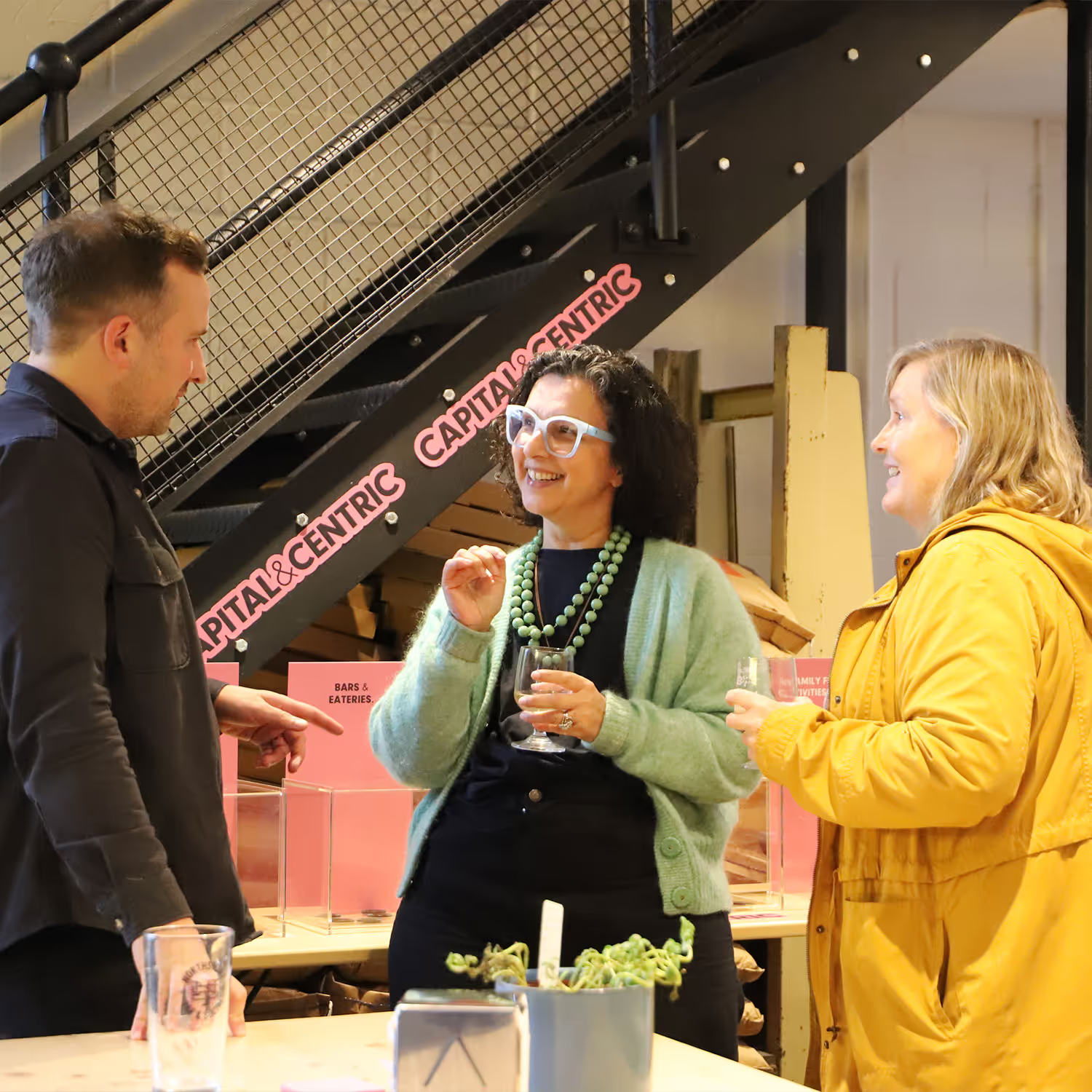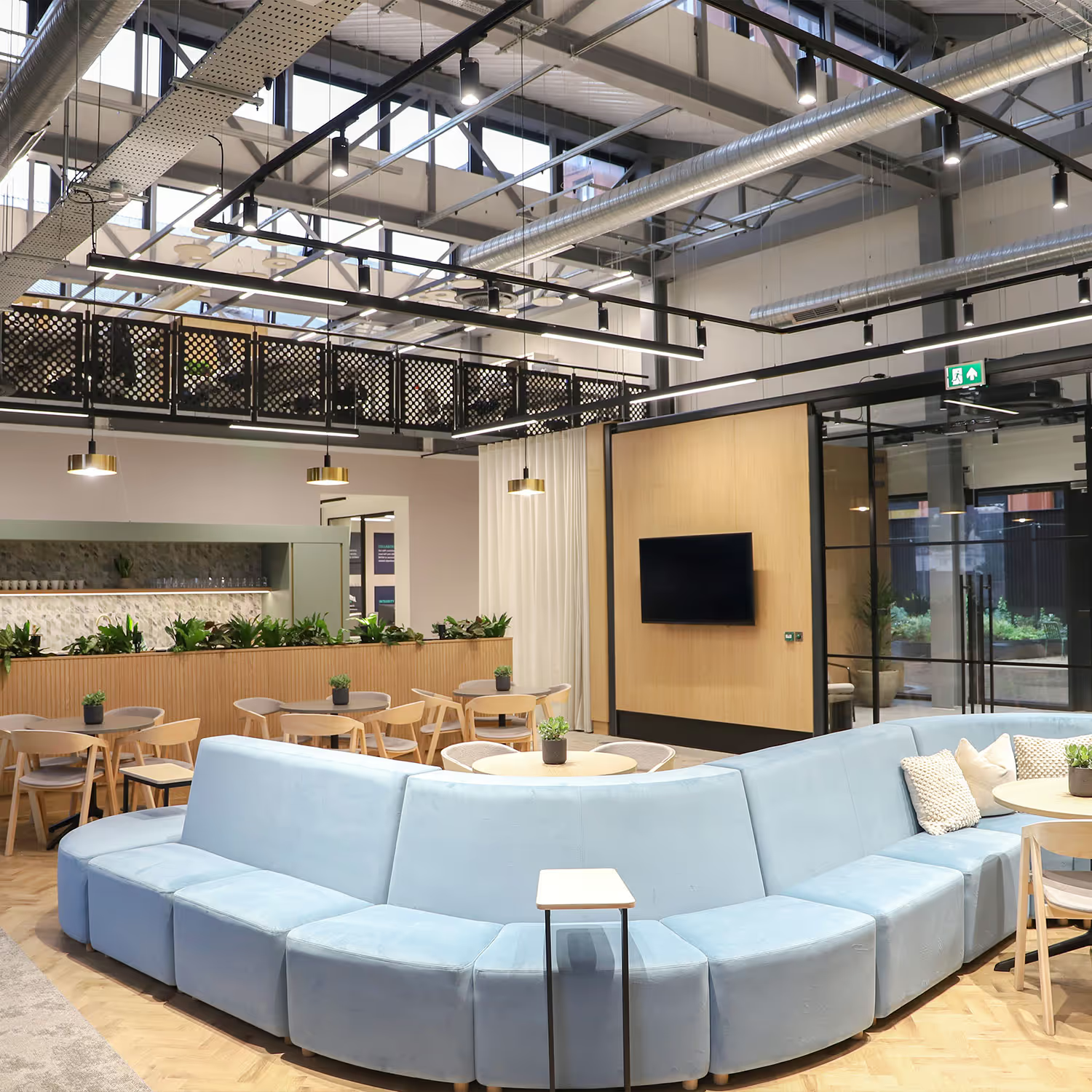Community Service: Interview with Adam Higgins.
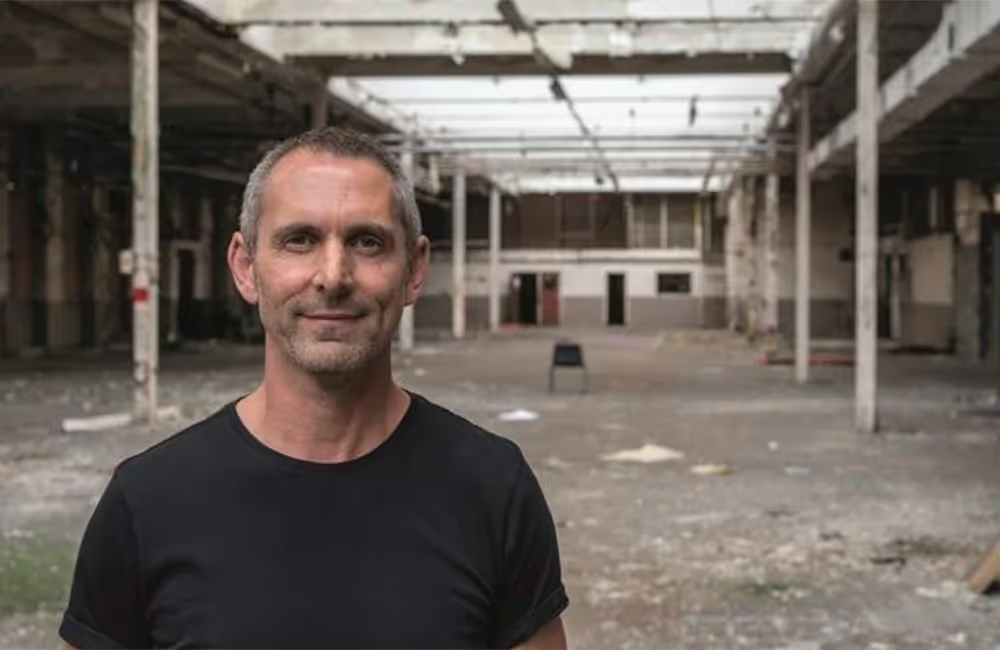
ON 2 SEPTEMBER LAST YEAR, CAPITAL & CENTRIC CO-FOUNDER ADAM HIGGINS WAS SETTLED IN FOR A SUNDAY EVENING AT HOME WHEN HE RECEIVED A MESSAGE TELLING HIM ONE OF LIVERPOOL’S ICONIC LITTLEWOODS BUILDINGS, WHICH HIS BUSINESS WAS IN THE PROCESS OF CONVERTING INTO FILM AND TV STUDIOS, WAS ON FIRE.
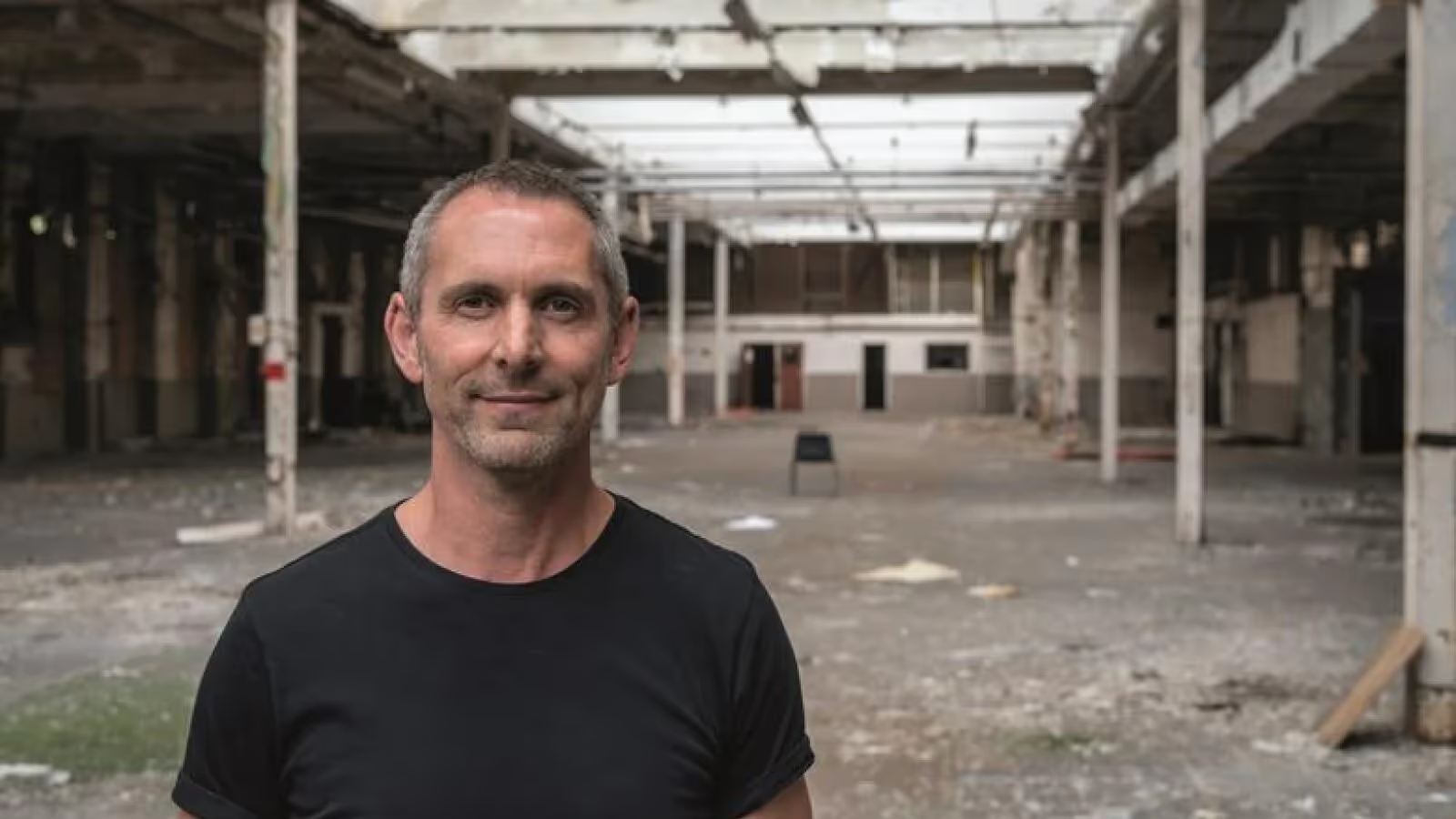
As Higgins raced along the motorway to the site, he tried to convince himself the swelling bank of dark air in the distance was cloud. As he got closer, he was forced to accept that it was smoke pouring from the building and face the reality that Capital & Centric’s biggest regeneration project to date could be over.
“I felt absolutely sick,” he says. “There was this dreadful weight of responsibility because they are two of Liverpool’s most famous buildings, they had been empty for 17 years and they had caught fire on our watch. I thought it could be the end of Littlewoods Studios.”
Thankfully, it wasn’t. The blaze, started deliberately in the roof under the art deco clock tower, took more than 50 firefighters to contain, but the buildings remain structurally sound and Capital & Centric is marching ahead with its plan for the scheme, which like the proverbial phoenix is rising from the ashes.
In keeping with the company’s ethos, it, like all of Capital & Centric’s other projects, will have a community feel. Higgins explains to Property Week why it is so intent on being a responsible property developer and how it is going about it.
It is clear Higgins’ dismay at the Littlewoods fire was not just because he was potentially watching his money go up in smoke. The factor that sets Capital & Centric apart, he believes, is its laser-sharp focus on the people it is developing for.
He believes that Littlewoods Studios will be transformative for the area, which, just a mile and a half outside the city centre, is fairly deprived. The developer has signed Twickenham Studios as its anchor tenant and is in advanced talks with an educational organisation about how to address a skills shortage for the film industry while bringing employment to the area.
“The trouble with city centre regeneration is that it rarely touches those living around the city,” says Higgins. “Littlewoods has a real chance to engage with that area and that, to me, is how regeneration should be done.
“The trouble with city centre regeneration is that it rarely touches those living around the city”
“A lot of buildings aren’t really being designed with the occupier in mind. There’s no real attempt to make a place; it’s just bricks, mortar, glass and steel. That will not be good for a city.”
Higgins believes the focus by developers on finding the quickest way to secure financial returns has created a false economy. “People are overly motivated by financial returns. They are very important and I’m not suggesting we don’t make them, but we sometimes take a less direct route to profit,” he explains.
Higgins tells the story of a fellow developer who said it would not be possible to add a landscaped garden to a residential scheme because “it wasn’t in the business plan”.
“It is absolutely bizarre that people think like that in this day and age,” he says. “If they added that green space, they could charge higher rents and the units would be easier to fill. You’d at least pay for the garden, but probably also make more money on top of that. You have to put the end user first.”
Green space features heavily at Kampus, a £250m build-to-rent scheme Capital & Centric and Henry Boot Developments are developing on a former Manchester Metropolitan University campus. Higgins recalls the email marketing in the site dropping into his inbox just minutes after he and business partner Tim Heatley had decided they wanted to move into residential development.
“The only problem was the site was a lot bigger than little old Capital & Centric. We approached Henry Boot Developments, which we had done some work with before, because it had the kind of firepower we needed, while we were good with the creative elements. So we teamed up and won the site.”
Capital & Centric is also working on converting an abandoned 1830s mill into residential scheme Crusader, which will comprise 123 apartments. The developer created a stir when it opted to sell the units to local owner-occupiers rather than to bigger investors.
Agents encouraged Higgins and Heatley to market Crusader overseas, because in countries such as China and the UAE they could shift tens of units at a time. But it did not sit well with the duo. “We both felt a bit uncomfortable about it,” says Higgins. “It didn’t feel like we were doing the right thing for ourselves or for Manchester.”
TAKING THE PLUNGE
The pair decided to take the plunge and sell the units off themselves. On a rainy day last July, a queue of people waiting to put down a deposit on a flat marked the first time Manchester had seen such a line in more than a decade.
While Kampus and Crusader have different ownership models, Higgins says both projects are hinged on creating a community for residents. While neither is complete yet, events have been held for both schemes, encouraging future residents to mingle before they move in.
Capital & Centric’s primary focus will continue to be residential, says Higgins. Since its inception, the company has moved from being a solely commercial developer to having a portfolio and pipeline that is 70% residential and 30% commercial.
The residential weighting stands to increase further if the project Higgins says he is most excited about progresses. The business has been working on a new concept, Nowhaus, with which it aims to address the housing shortage by building high-density units, complete with roof gardens and modern facades and interiors, in areas around major cities.
“There’s a whole section of the market that isn’t being addressed, where younger people want to move to the suburbs but don’t want to move into the sort of houses that their grandma lived in,” says Higgins.
He believes Nowhaus could be the future of modern suburban housing and is in the process of applying for funding to make the concept a reality.
Whatever the project, it is clear that the man described on the company website as the “most competitive human being we’ve ever met” understands that if you deliver what the people want you can also deliver the profits the company wants.

